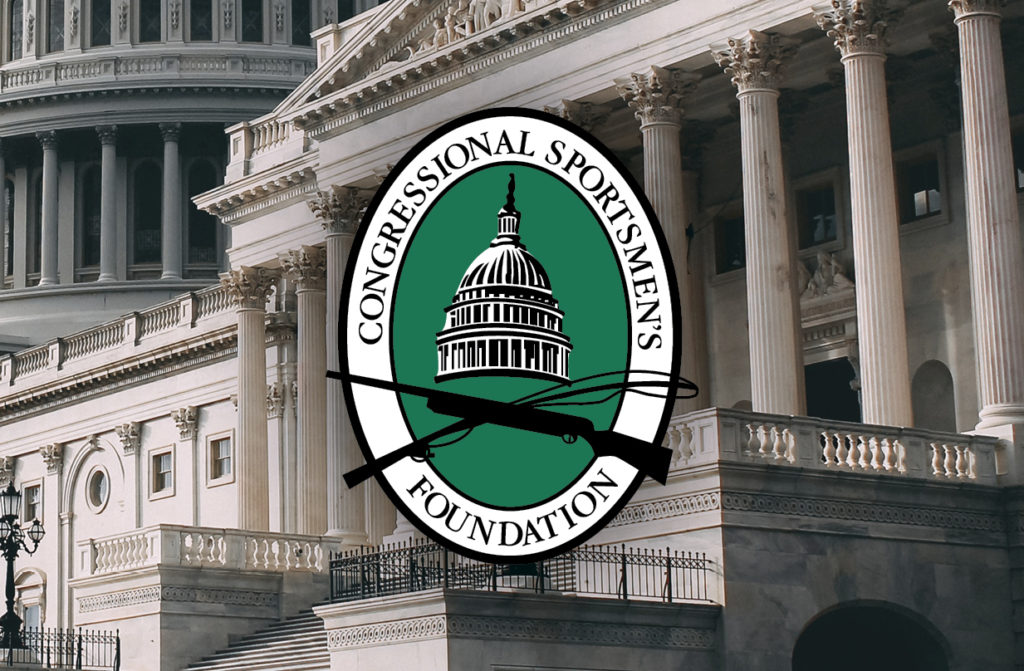Policy Corner Brief: DECEMBER 2020

House Agriculture Committee Chairman Peterson Introduces Bill to Expand CRP
On Thursday, December 9, House of Representatives Agriculture Committee Chairman and Congressional Sportsmen’s Caucus member Rep. Collin Peterson (D-MN) introduced a bill that would expand the Conservation Reserve Program’s (CRP) maximum enrollment cap to 50 million acres by the year 2026. Currently set at 25 million acres for Fiscal Year (FY) 2021 and reaching a new enrollment cap of 27 million acres by FY 2023, CRP continues to be one of the United States’ most successful voluntary private land conservation programs. Chairman Peterson’s bill would change the acreage caps last passed as part of the 2018 Farm Bill, thus, significantly increasing the availability of CRP for America’s landowners.
Administered by the U.S. Department of Agriculture’s (USDA) Farm Services Agency (FSA), CRP provides annual rental payments for landowners who agree to willingly transition land away from agricultural production towards incorporating land-use practices designed to benefit conservation objectives for the duration of the CRP contract period (typically 10-15 years). Though originally designed to promote soil conservation, the objectives of CRP have since expanded to include conservation priorities of particular importance for hunters and anglers, including wildlife habitat and water quality. Lately, CRP has also been cited as a potential tool to aid in carbon sequestration efforts given the priority placed on planting deep rooted perennial plants.
As the Congressional Sportsmen’s Foundation continues to work on its final priorities for the 116th Congress and begins looking forward to working with the 117th, we are also working with our partners in the conservation community to identify opportunities to improve CRP and similar conservation programs when the Farm Bill is considered for reauthorization in 2023. Among the top priorities for the sportsmen’s and conservation communities is continued support for the Conservation Reserve Program, pointing out that CRP is a working lands program. As such, it can be effectively incorporated into a property’s management plan to satisfy important conservation needs, including critical habitat for important game and non-game species, while providing a consistent source of income and adding a sense of resiliency for farmers.
Massachusetts’ Dog Owners Take a Sigh of Relief
On November 16, one of Massachusetts’ numerous restrictive kennel bills was sent to accompany a study order, easing some of the concerns that dog owners have had over the past two years. For clarification, when a bill is “sent to study,” it is commonly the end of the road. Therefore, this legislation – Senate Bill 989 (SB 989) – would have to overcome immeasurable hurdles to survive.
Under the guise of the term “outside and unattended,” SB 989 would prohibit an owner from keeping a dog in a fenced-in yard or kennel for longer than 5 hours, while simultaneously restricting an individual from keeping the dog outside from 10:00 p.m. to 6:00 a.m. This bill is completely devoid of accounting for the dog’s specific breed or whether the dog has access to a covered shelter.
In 2019, the Congressional Sportsmen’s Foundation (CSF) submitted a letter of opposition to the Joint Committee on the Judiciary, staunchly opposing this inconsiderate legislation. Additionally, earlier this year, CSF teamed up with the American Kennel Club in submitting a sign-on letter of opposition to the Joint Committee on the Judiciary. The letter was also sent to the Joint Committee on Municipalities and Regional Government with regard to House Bill 1822 (HB 1822) – a similarly prohibitive kennel bill. On May 8, a redrafted bill regarding HB 1822 was published, wherein it excluded the arbitrary limitations.
Restrictive kennel legislation has been a common theme pushed by anti-sportsmen across the nation. CSF will continue to work with its partners, such as the American Kennel Club, in fighting these bills wherever they may arise.
Bill to Define Liability Standards for Prescribed Burning Pre-Filed in Missouri
On December 8, Representative-Elect Tim Taylor pre-filed House Bill 369 (HB 369), titled the “Prescribed Burning Act,” ahead of the upcoming 2021 legislative session. HB 369 seeks to formally define the liability standards that landowners must meet when using prescribed fire on their property. Currently, the liability standards for landowners whose use of prescribed fire results in accidental damage to neighboring property are currently undefined in Missouri statute. HB 369 will protect landowners and certified prescribed burn managers, unless the accidental damage is found to be the result of negligence.
Liability concerns are widely cited as a primary reason that landowners are reluctant to use prescribed burning practices on their property. However, the benefits of prescribed fire on wildlife habitat for game (e.g., northern bobwhite and wild turkey) and non-game (e.g., many pollinator and songbird species) wildlife are widely documented. More broadly, the benefits of prescribed burning also include the removal of understory fuels which can reduce the risk of wildfires, the removal of non-native and undesirable plants that are not adapted to fire, and the promotion of native fire-adapted plants that contribute to healthy ecosystems. Given these benefits, it is important to help remove hurdles that may impede the responsible use of prescribed burning.
The Missouri General Assembly considered two bills last year that sought to similarly define the liability standards for prescribed burning. In support of these bills, the Congressional Sportsmen’s Foundation (CSF) submitted a formal letter to all members of the Missouri Legislative Sportsmen’s Caucus, encouraging their consideration of this important legislation. CSF will continue to support legislation that promotes the responsible use of wildlife management practices on private lands. With more than 90% of Missouri privately owned, active management on private lands will continue to play a critical role in the management of our public trust wildlife resources.
SHARE ON
You may also like
The role corn plays for gamebirds and economies ac...
Sportsmen’s conservation policy issues from publ...
Sportsmen’s conservation policy issues from publ...


























